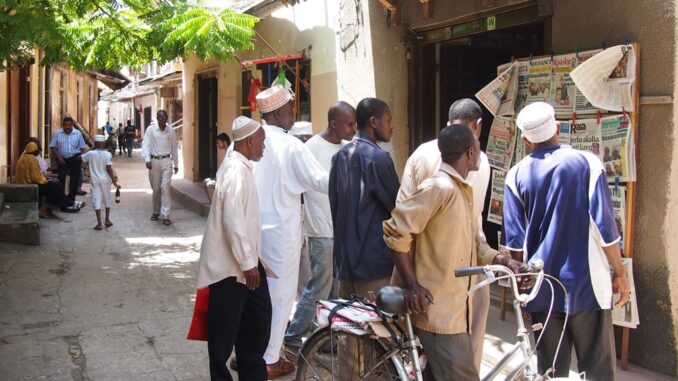
Debates over decentralization in authoritarian contexts often center on whether it provides significant steps toward democratization or is simply a tool autocrats use to shore up their power. However, evidence from Tanzania finds that opposition-led local governments can constrain the central government’s reach and build a stable opposition.
An insightful summary (prepared recently by Megan Baxter) distilled the research findings of Rachael McLellan’s paper “Local Control: How Opposition Support Constrains Electoral Autocrats”. This was discussed at the ‘Local Responses to Conflict and Displacement’ Roundtable discussion, hosted by Governance and Local Development Institute (GLD), University of Gothenburg.
Using a combination of administrative and electoral data, over 100 interviews with voters, politicians, and bureaucrats, and a list experiment, GLD Fellow Rachael McLellan’s working paper provides a thorough understanding of how opposition parties in local governments have been able to establish territorial control and concomitantly constrain state reach in Tanzania.
Main Findings
McLellan’s research finds that decentralization has given opposition local governments some advantages. First, as brokers of resources, local opposition governments can take away community-level control from the central government. Traditionally, electoral autocrats target local level governments and communities by withholding state resources or by providing resources to those who are loyal, a tactic known as a punishment regime. However, the more decentralized a system is, the more control local governments have over resource provision. This allows local opposition parties to constrain the state’s sanctioning power. Furthermore, they can reward loyal communities, exclude disloyal communities, or use resource provision to win over voters.
Second, the opposition local governments have an informational advantage by understanding the patterns of popular support in the smaller communities and cutting off this knowledge from the central government. This information can be leveraged to bolster electoral support by understanding which communities should be targeted with sanctions or rewards.
Extent of functional decentralization and nature of Public Goods
The degree of decentralization affects opposition local governments’ ability to constrain the central government. The more decentralized the system, the more power the local government has over resource allocation for infrastructure projects. The type of infrastructure project undertaken also impacts the degree of coordination with the central government. For example, while building new schools requires high levels of coordination with the central government, expanding or improving existing schools is under the purview of the local council and, therefore, requires less coordination with the central government.
Water projects, such as wells and pumps, require a moderate level of coordination with the central government in the form of technical expertise and ministerial sign-off.
Rachael McLellan’s research finds that the impact of decentralization depends, in part, on the nature of public goods.
• For public goods projects requiring high degrees of coordination with the central government, the state can maintain its punishment regime. Opposition parties in local governments have little ability to impact resource distribution.
• For public goods projects requiring medium coordination with the central government, the state’s punishment regime is offset in opposition areas. Opposition local governments can shift a degree of resource distribution in their favor.
• For public goods projects requiring low coordination with the central government, opposition local governments can constrain the central government’s punishment regime and even invert it.
Conclusion
In Tanzania’s electoral autocracy, varying degrees of decentralization of functional powers and levels of state coordination affect opposition local governments’ service provision capacity. McLellan’s work highlights how decentralization can become an unintended tool to counteract central government reach and bolster stable opposition party power in autocracies. This has far-reaching implications, including the potential to identify if local governments might exhibit more democratic characteristics than the central government.
This contents of this blog originally appeared on the website of the Governance and Local Development Institute (GLD), Department of Political Science, University of Gothenburg.
Executive summary: Baxter, Megan K. 2024. “Could Decentralization Be Key to Resisting Electoral Autocrats? Evidence from Tanzania.” Eds. Bjurenvall, Sara; Castaman, Kiara; Lust, Ellen; and Shaber-Twedt, Rose. Governance and Local Development Institute, University of Gothenburg, Executive Summary no. 2, 2024.
Full working paper: McLellan, Rachael. 2022. “Local Control: How Opposition Support Constrains Electoral Autocrats,” Governance and Local Development Institute Working Paper Series, University of Gothenburg, no. 59.

